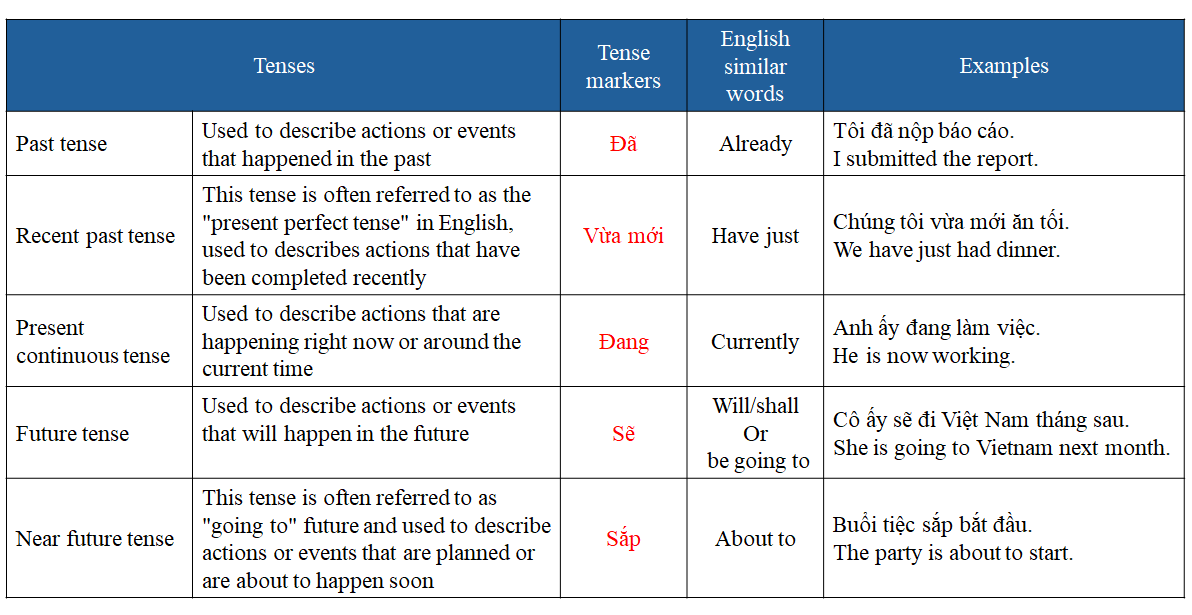In English, verbs change regularly or irregularly depending on the tense, but in Vietnamese, there is no such concern. In this lesson, we will learn how to express the past, future, and other tenses in Vietnamese!
Vietnamese Tenses
The sentences introduced so far have almost been in the present tense. In Vietnamese, if nothing is added to the sentence, it is generally understood to be in the present tense.
To express meanings related to the past or future, follow the three rules below:
- If there is a word related to time in the sentence, such as “yesterday,” “next year,” or “now,” that word acts as a replacement for a tense marker.
For example: Hôm qua, tôi đi ăn với gia đình.
(Yesterday, I went to eat with my family.)
2. If there is no word related to time in the sentence, add a tense marker before the verb or adjective, as shown in the next section.
For example: Tôi đã đi ăn với gia đình.
(I went to eat with my family.)
3. When a word related to time is used together with a tense marker in the sentence, it becomes a stronger expression that clearly indicates the tense.
For example: Hôm qua, tôi đã đi ăn với gia đình.
(Yesterday, I went to eat with my family.)
Tense Markers
Words Related to Time
As mentioned earlier, you can express the tense in a sentence using words related to time instead of a tense marker. These time-related words are placed at the beginning or end of the sentence. If placed at the beginning of the sentence, there is a comma (“,”) after the time-related word.

①Tháng sau, tôi sẽ đi Nhật Bản.
Next month, I will go to Japan.
②Anh ấy đã nộp báo cáo hôm qua.
He submitted the report yesterday.
Practice quiz:
Fill in the blanks using the appropriate tense marker (đã, sẽ, đang, vừa mới, sắp).
① Ngày mai, tôi ___ đi hẹn hò.
Tomorrow, I ___ go on a date.
②A: Em đã ăn tối chưa?
Have you had dinner?
B: Vâng, em ___ ăn tối rồi.
Yes, I have eaten. / Yes, I just ate.
③Xin mọi người ổn định chỗ ngồi, buổi biểu diễn ___ bắt đầu.
Please return to your seats. The performance is about to begin.
④Anh ấy không bắt máy. Có lẽ anh ấy ___ lái xe.
He didn’t answer the phone. He might be driving.
⑤A: Anh học tiếng Việt bao lâu rồi?
How long have you been studying Vietnamese?
B: Tôi ___ bắt đầu học từ tuần trước.
I just started studying from last week.
